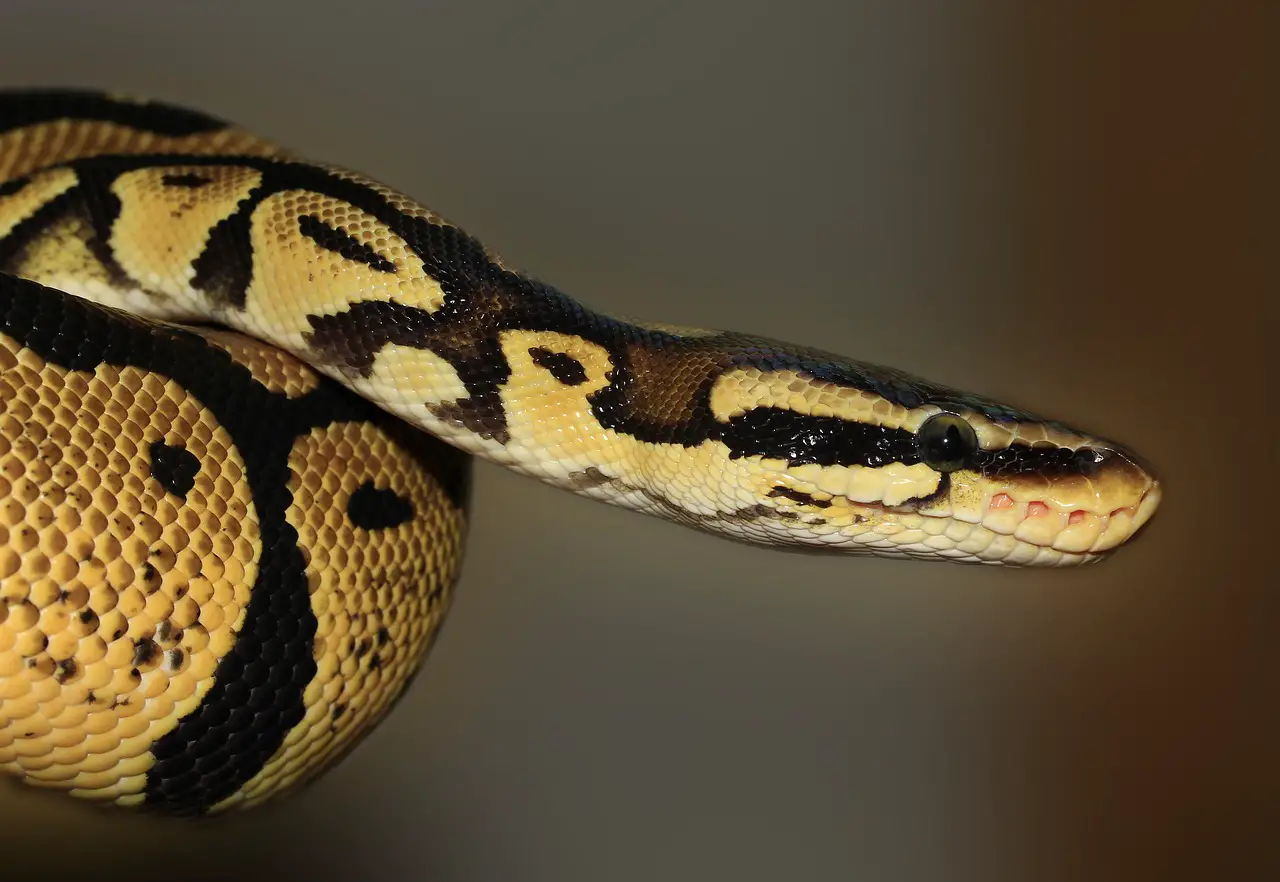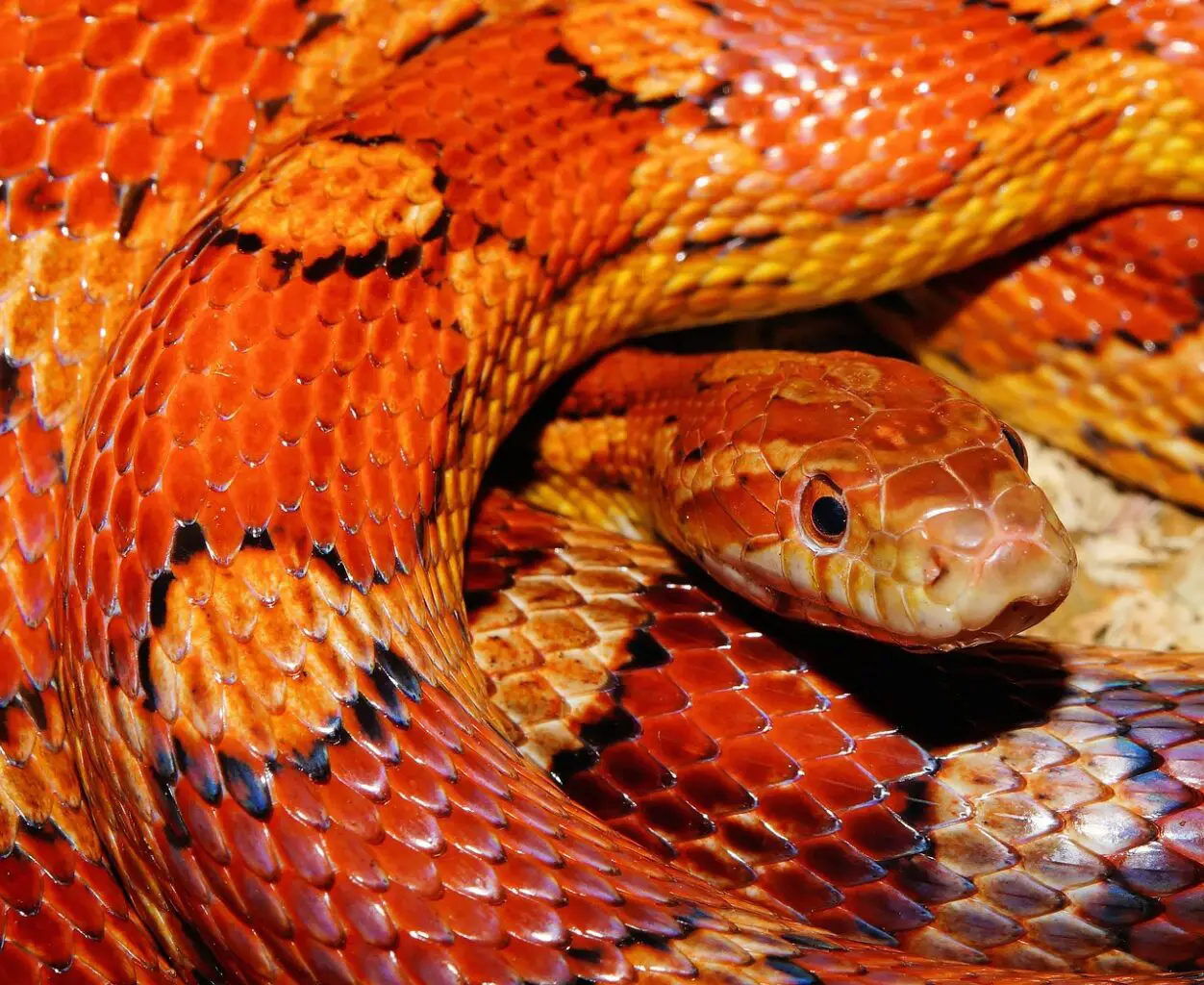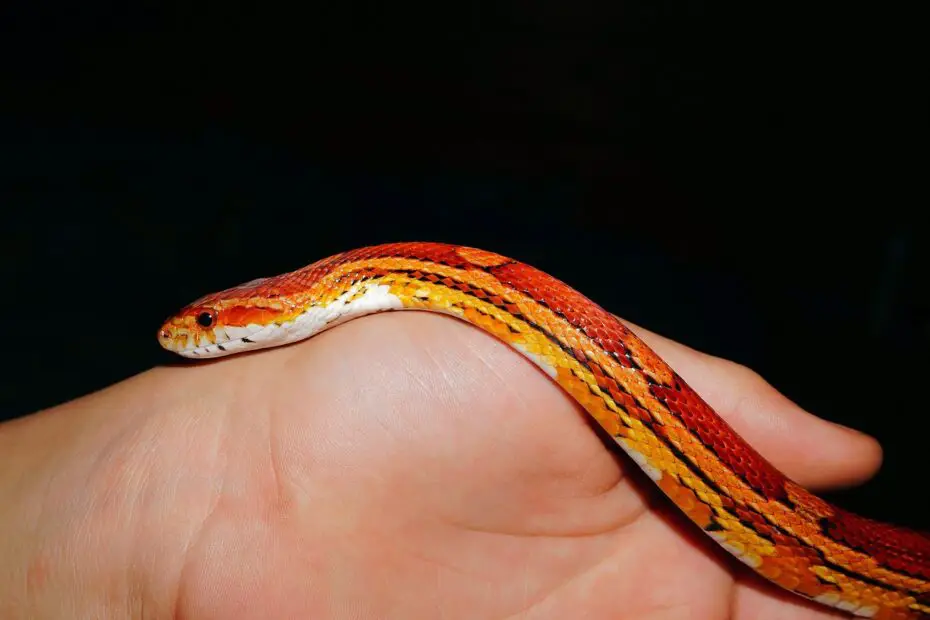Snakes have long captivated human interest with their slithering elegance and mesmerizing presence. For individuals new to the world of reptiles, choosing the right snake to start their journey can be both exciting and overwhelming. Beginner snakes serve as the ideal companions for those taking their first steps into snake ownership, providing a rewarding and manageable experience.
In this article, we will explore the characteristics of beginner snakes, discuss popular species, delve into their housing and care requirements, and offer guidance on handling and socialization. By the end, you’ll have a comprehensive understanding of these remarkable creatures, empowering you to embark on your snake-keeping adventure confidently.
You may also want to know if pet snakes can be friendly and affectionate.
Introduction
Beginner snakes are specifically selected species that possess traits suitable for novice snake owners. These reptiles are known for their ease of care, docile temperament, and forgiving nature, making them an excellent choice for individuals who are new to snake keeping. It is crucial to choose the right beginner snake, as it sets the foundation for a positive and successful reptile ownership experience.
Characteristics of Beginner Snakes
Beginner snakes possess specific characteristics that make them well-suited for individuals with limited experience in reptile care. Understanding these traits will help you make an informed decision when selecting your first snake.

Low Maintenance Requirements
One of the primary considerations for beginners is the level of maintenance required. Beginner snakes typically have straightforward care needs, making them ideal for those who are still learning the ropes. They generally have simple feeding schedules, manageable enclosure requirements, and are less prone to health issues.
Docile Temperament
A snake’s temperament is an essential aspect to consider, especially for novice owners. Beginner snakes are known for their calm and docile nature, which means they are less likely to show aggression or stress when handled. This characteristic allows beginners to develop confidence and establish a bond with their snake.
Ease of Handling
Handling a snake can be a thrilling experience, and beginner snakes are perfect for individuals who wish to interact with their reptile companions. These snakes are generally more tolerant of handling and adapt well to human touch, allowing owners to engage in safe and enjoyable interactions.
Popular Beginner Snake Species
Several snake species have gained popularity among beginner snake enthusiasts due to their manageable size, docile temperament, and ease of care. Let’s take a closer look at some of the most common beginner snake species.
Corn Snakes
Corn snakes are a popular choice for beginners due to their vibrant colors, manageable size, and ease of care. They are known for their docile nature and adaptability to different environments, making them an excellent option for first-time snake owners.
Ball Pythons
Ball pythons, also known as royal pythons, are revered for their gentle disposition and manageable size. These snakes are highly recommended for beginners due to their low-maintenance requirements and calm demeanor.
King Snakes
King snakes are known for their striking patterns and impressive feeding response. While some king snake species can be more challenging to care for, several subspecies, such as the California king snake, are suitable for beginners.
Milk Snakes
Milk snakes are colorful and visually captivating reptiles that are often mistaken for venomous coral snakes due to their similar appearance. They are relatively easy to care for and have a generally docile temperament, making them an attractive choice for beginners.
Housing and Habitat
Providing a suitable habitat is essential for the well-being of your beginner snake. Here are some key factors to consider when setting up their enclosure.
Enclosure Size and Setup
The size of the enclosure largely depends on the species and size of your snake. A general rule of thumb is to provide a habitat that allows the snake to fully stretch out but is not excessively large, as this can cause stress. A secure enclosure with proper ventilation and escape-proof features is crucial.
Temperature and Humidity Requirements
Snakes are ectothermic creatures, relying on external heat sources to regulate their body temperature. It is vital to provide a temperature gradient within the enclosure, allowing the snake to choose the most suitable spot to maintain its desired body temperature. Additionally, maintaining the appropriate humidity level is crucial for their overall health.

Suitable Substrates
Choosing the right substrate is essential for maintaining a clean and comfortable habitat. Options such as aspen bedding, reptile carpet, or paper towels are commonly used for beginner snakes. Avoid substrates that can cause impaction or retain excessive moisture.
Feeding and Nutrition
Proper nutrition plays a crucial role in the overall health and well-being of your beginner snake. Here are some important considerations when it comes to feeding.
Prey Items and Feeding Frequency
Different snake species have varying dietary requirements. Most beginner snakes are fed appropriately-sized rodents, such as mice or rats. The feeding frequency typically ranges from once every five to seven days for younger snakes, gradually decreasing as they mature.
Appropriate Feeding Methods
When feeding your snake, it is essential to ensure they consume their prey safely. Feeding live rodents can pose risks to both the snake and the owner, as rodents may inflict injuries on the snake during feeding. Therefore, it is generally recommended to feed pre-killed or frozen-thawed prey.
Avoiding Common Feeding Issues
Overfeeding is a common mistake that can lead to obesity and various health issues in snakes. It is important to provide the appropriate-sized prey items to prevent overconsumption. Additionally, maintaining proper hygiene and removing uneaten food promptly is crucial to prevent bacterial growth and potential health problems.
Health and Care
Regular care and monitoring of your beginner snake’s health are essential for their well-being. Here are some guidelines to follow.
Regular Veterinary Check-ups
Just like any other pet, snakes benefit from regular veterinary check-ups. A reptile veterinarian can assess their overall health, provide necessary vaccinations, and offer guidance on any specific care requirements based on the species.
Common Health Concerns in Beginner Snakes
Although beginner snakes are generally hardy and less prone to health issues, certain conditions can still arise. Respiratory infections, scale rot, and mites are among the common health concerns to be aware of. Regular observation and maintaining a clean and suitable habitat are essential preventive measures.
Providing Proper Hygiene and Cleanliness
Maintaining a clean enclosure is crucial for your snake’s health. Regularly remove any soiled substrate, clean water bowls, and disinfect the enclosure as necessary. Avoid using harsh chemicals that can be toxic to your snake and opt for reptile-safe cleaning products.
Handling and Socialization
Building a bond with your beginner snake through handling and socialization is a rewarding experience. Here are some tips for safe and enjoyable interactions.
Building Trust with Your Snake
Snakes can be sensitive to sudden movements and loud noises. It’s important to create a calm and quiet environment when interacting with your snake. Regular, gentle handling sessions can help build trust and familiarity over time.
Correct Handling Techniques
When handling your snake, it’s crucial to support its body properly and avoid gripping or squeezing too tightly. Avoid handling your snake during shedding or after feeding to minimize stress. Always wash your hands before and after handling to maintain good hygiene.
Recognizing Signs of Stress or Discomfort
Understanding your snake’s body language is key to recognizing signs of stress or discomfort. Hissing, striking, or unusual defensive behaviors may indicate that your snake feels threatened. Respect their boundaries and provide a secure and quiet environment when they show signs of stress.
Common Mistakes to Avoid
While beginner snakes are generally forgiving and resilient, it’s important to avoid common mistakes that could negatively impact their well-being. Here are some pitfalls to watch out for.
Overfeeding
Overfeeding can lead to obesity and related health issues in snakes. It’s crucial to provide appropriately sized prey items and maintain a balanced feeding schedule based on the snake’s age and size.
Inadequate Temperature Regulation
Maintaining the correct temperature gradient within the enclosure is vital for your snake’s health and digestion. Inconsistent or incorrect temperatures can result in poor appetite, improper digestion, and overall stress.
Lack of Research and Preparation
Proper research and preparation are key to successful snake ownership. Understanding the specific needs of your chosen species, including their habitat, feeding requirements, and potential health issues, will help you provide the best care possible.
Conclusion
Beginner snakes offer an exciting opportunity for individuals to embark on a rewarding journey into the world of snake keeping. With their low maintenance requirements, docile temperament, and ease of handling, these reptiles serve as perfect companions for beginners. By providing the appropriate housing, nutrition, and care, while practicing safe handling techniques and avoiding common mistakes, you can create a thriving environment for your beginner snake and enjoy the unique bond that forms between you.
FAQs
Q: What is the best beginner snake for children? A: Corn snakes and ball pythons are often recommended as suitable beginner snakes for children due to their manageable size and docile temperament.
Q: Can beginner snakes be kept in small enclosures? A: While beginner snakes can be kept in smaller enclosures when they are young, it is important to provide adequate space as they grow to ensure their well-being and comfort.
Q: How often should I handle my beginner snake? A: Handling frequency depends on the individual snake’s personality and comfort level. Starting with short, frequent handling sessions and gradually increasing the duration can help your snake adjust to being handled.
Q: Are beginner snakes prone to health issues? A: Beginner snakes are generally hardy and less prone to health issues compared to some other snake species. However, it’s important to provide proper care, monitor their health, and seek veterinary attention if any concerns arise.
